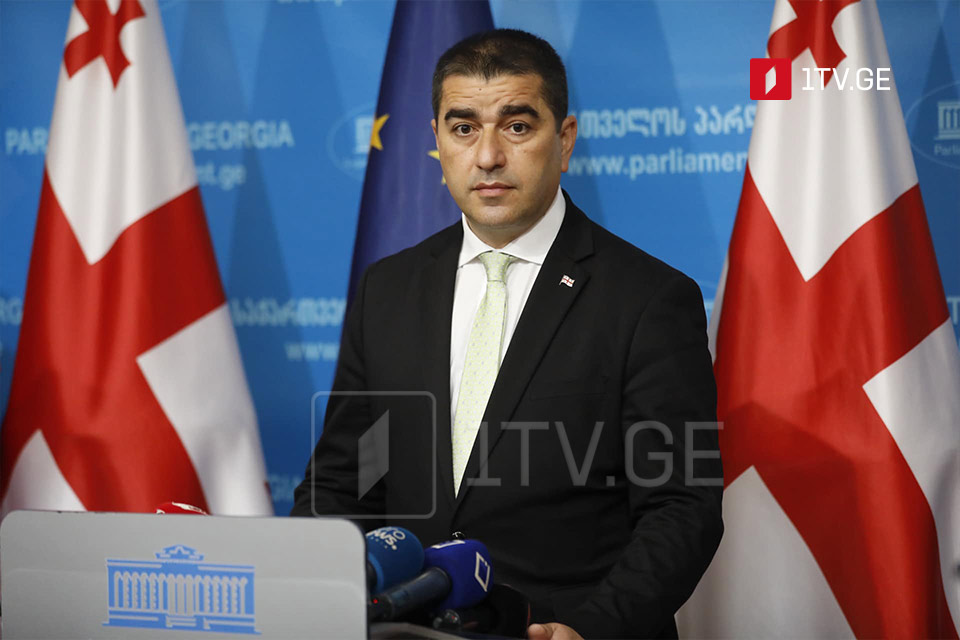The Georgian Parliament Speaker, Shalva Papuashvili, has signed the Law On Transparency of Foreign Influence.
As Papuashvili explained, the main goal of this law is to strengthen the resilience of Georgia’s political, economic, and social systems against foreign interference.
“The approach of the law is simple and clear. If non-governmental organizations and media, funded by foreign governments, want to influence the lives of the Georgian people, they must meet a minimum standard of transparency. The population must know who is behind each actor. This principle applies to state institutions, political parties, and civil servants, and it should also apply to foreign-funded organizations. As we mentioned, the law will achieve more than its immediate goals.
The two-month review process confirmed this. The process revealed once again that the radical opposition prioritizes the interests of other countries over the national interests of the Georgian people. They confuse national interest with applause from foreign politicians and independence with obedience. They exhibited this behaviour while in power and continue to do so in opposition.
Moreover, for the past two months, we have witnessed threats, blackmail, stigmatization of the law, and ministers of foreign countries protesting against the government elected by the people. We saw references to the Maidan from abroad and its aesthetics copied internally. In essence, we observed everything that is non-European and Soviet.
All this turmoil arose because the Georgian people expressed their desire to know more about the foreign money flowing into their country. The most disappointing aspect of this discussion was the absence of any foreign state, donor, or foreign-funded NGO willing to commit to transparency towards the Georgian people voluntarily.
This revealed that the protests were primarily about maintaining the privilege of spending foreign money secretly from the people. This exaggerated reaction occurred even though the Transparency Law imposes a single and simple obligation: organizations receiving more than 20% of their income from foreign funding must declare their finances once a year. This is the minimal obligation that could be imposed.
No legal system worldwide has a lesser commitment to transparency. Over time, the myths created by disinformation have been dispelled, emotions have subsided, and many citizens who initially joined the radical opposition’s protests have recognized that the Transparency Law will enhance the responsibility and accountability of NGOs and their funders.
It will improve the political system, weaken disinformation, reduce radicalism and polarization, and most importantly, give citizens leverage to ensure that foreign funding serves their interests, not just the interests of donors and funded organizations. This makes the law one of the most Georgian laws.
Finally, I would like to thank the Georgian people, who once again demonstrated their wisdom and showed everyone both at home and abroad that there is only one side – Georgia’s side – and only one choice – to stand on Georgia’s side,” Papuashvili said.
The Georgian President, Salome Zourabichvili, vetoed the law On Transparency of Foreign Influence. However, Parliament overcame the President’s veto on the law on May 28.
